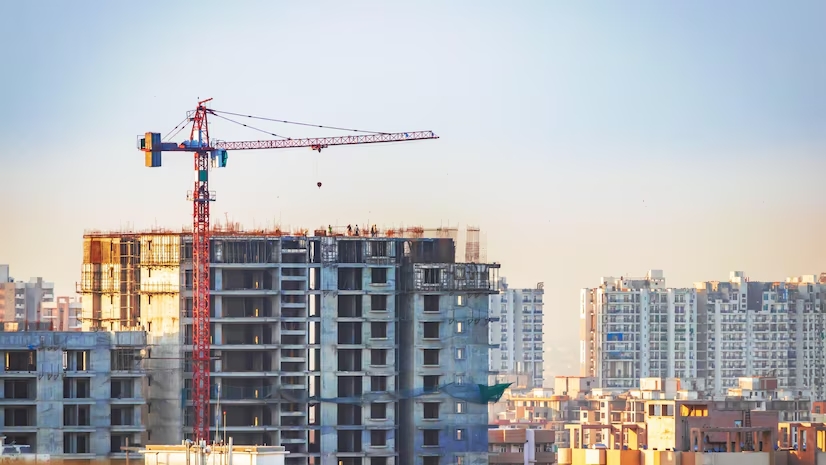Mrs. Smita Dhanraj Patil from Pune Elected as National President of MAHI, the women’s wing of National Real Estate Development Council (NAREDCO)
More Women Should Join the Construction Industry – Dr. Niranjan Hiranandani’s Opinion Mrs. Smita Dhanraj Patil from Pune Elected as National President of MAHI, the women’s wing of National Real Estate Development Council (NAREDCO) that works under the aegis of Ministry of Housing & Urban Affairs, Govt. of India. Pune: The construction industry is growing faster than other sectors in the country. The construction sector in India currently has a business growth rate of about 20%, and this is expected to increase in the future. Due to this, more women should join the construction industry, which is traditionally considered male-dominated, said Niranjan Hiranandani, Chairman of the National Real Estate Development Council (NAREDCO), and a well-known construction professional. NAREDCO has established “MAHI” as a platform to support women professionals in the real estate sector. This platform represents all sectors and is the highest national-level body under the Ministry of Housing and Urban Affairs. Hiranandani was speaking at the “MAHI Change of Guard Ceremony & Pune Conclave” organized by NAREDCO MAHI at Hotel Sheraton Grand. The event was attended by notable figures such as Mr. Shekhar Singh, IAS (Commissioner of Pimpri Chinchwad Municipal Corporation), Mr. Rajan Bandelkar (Vice Chairman, NAREDCO), Mr. G. Haribabu (President, NAREDCO), Mrs. Apekshita Tipse (MD, Cosmos Bank), Dr. Vidya Yeravdekar (Pro-Chancellor, Symbiosis University), Mr. Dev Gill (Famous Actor), newly elected Chairperson Mrs. Smita Dhanraj Patil, outgoing President and current Chairperson of MAHI, Dr. Ananta Singh Raghvanshi, and Mr. Bharat Agarwal, President of NAREDCO Pune. Continuing his speech, Niranjan Hiranandani stated, “Roti, Kapda, aur Makaan (food, clothing, and shelter) are the basic needs of human beings, but even today, many people do not have their own homes. Under the guidance of Prime Minister Narendra Modi, NAREDCO is committed to providing affordable homes. In cities like Mumbai, nearly 50% of the population lives in slums. To improve their standard of living, we will present a 10-year plan to the government so that Mumbai becomes slum-free and everyone can afford homes.” He also mentioned that through MAHI, efforts will be made to bring more women into the construction business, and necessary training will be provided. PCMC Commissioner Mr. Shekhar Singh said that the construction industry should not only establish separate wings for women but also take steps to address the significant number of women-approved projects in the sector. He emphasized that women are now in key positions in the country, such as the President, Chief Secretary, Director General of Police, and Chief Conservator of Forests in Maharashtra. He put a special focus on importance of sustainable developments. Mrs. Smita Patil, the newly elected President of MAHI, expressed that her focus would be on increasing the participation of women in the construction industry, promoting sustainable developments, water conservation, creating collaboration platforms with allied industries, promoting entrepreneurship and innovation in the industry. During the event, Mrs. Smita Patil launched an initiative named ‘Shashwat Nirman’, a NAREDCO MAHI initiative that will promote sustainable development in the industry by the hands of Mr. Shakhar Singh, Dr. Niranjan Hiranandani and Dr. Ananta Raghuvanshi. The initiative will be focused on creating awareness on sustainable developments within all the stakeholders including developers and home buyers. Dr. Ananta Raghuvanshi, Former President and current Chairperson of NAREDCO MAHI, mentioned the evolving journey of MAHI. Mr. Rajan Bandelkar (Vice-Chariman, NAREDCO) remarked that while the construction industry has been traditionally male-dominated, Prime Minister Narendra Modi’s “Beti Bachao, Beti Padhao” campaign has led to an increase in the participation of women in sectors like medicine and finance. However, their numbers in construction are still low. He expressed his happiness that a Marathi woman is now the National President of MAHI, an initiative that was started four years ago to increase female participation in the industry. The event was graced by many prominent leaders, government officials, architects from the industry. The event also featured two impactful panel discussions on Women in Real Estate and Sustainable Realty. At the event, G. Haribabu, Mrs. Apekshita Tipse, Dr. Vidya Yeravdekar, Mr. Dev Gill, and Mr. Bharat Agarwal also shared their thoughts and wished Mrs. Smita Patil and MAHI great success in its future endeavours.















